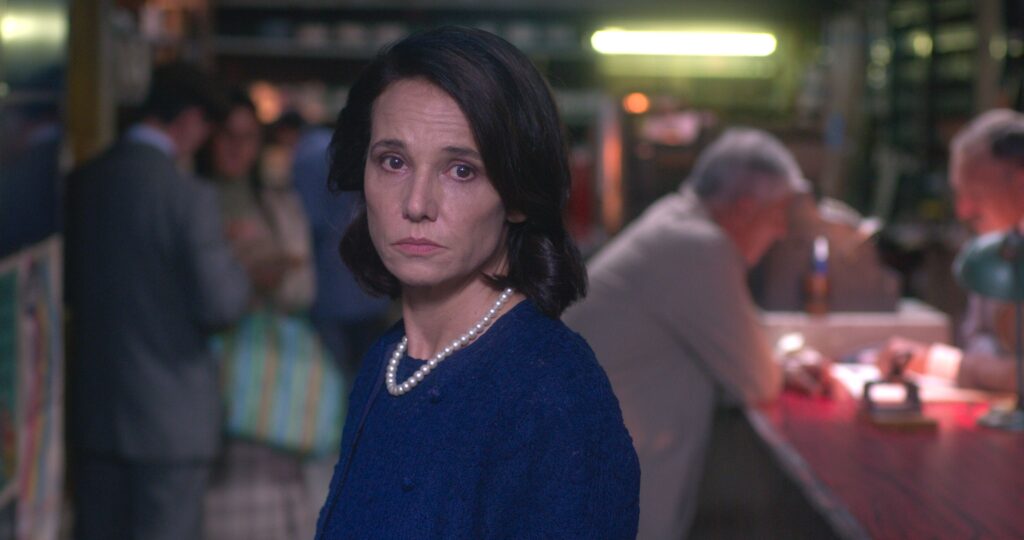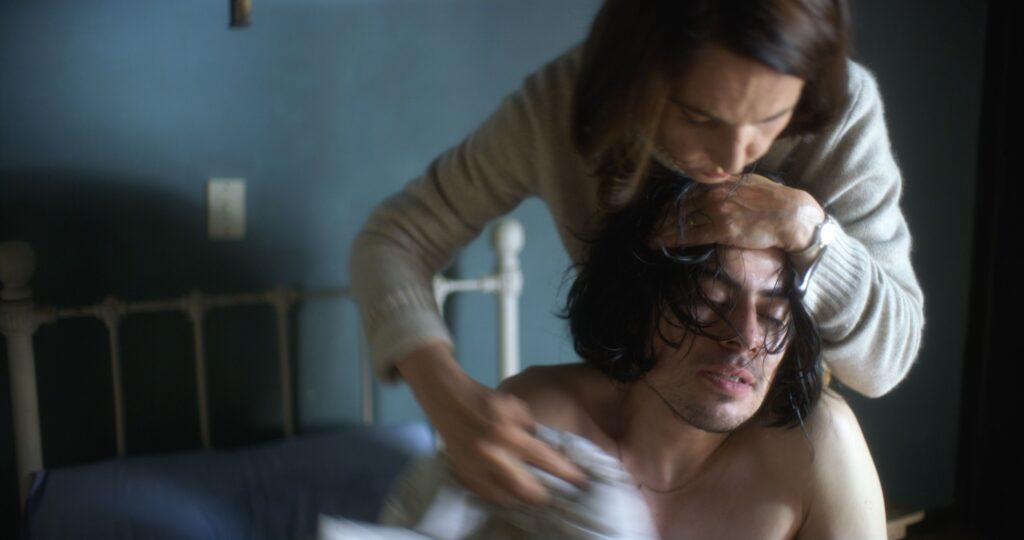
Chile ’76 is a masterfully understated thriller set in the first days of Pinochet’s coup in Chile and the resultant reign of terror.
Carmen (Aline Kuppenheim), the wife of a prosperous Santiago physician, is away at the family’s beach house when she is approached by the small coastal town’s priest. Knowing that she has medical training, the priest asks her to secretly nurse a young man (Nicolás Sepúlveda) with a gunshot wound. The priest says that he is hiding the young man because he had become a petty criminal through hard luck and deserves a break; but Carmen is savvy enough enough to know that the young man must be a leftist who is hunted by Pinochet’s secret police. To care for the young man would be taking a grievous risk. If discovered, the consequences for Carmen, and perhaps for her family, would be unspeakable.
Carmen embraces the risk, and the tension simmers. The audience follows her, knowing that her secret could be uncovered at any moment. All the time, she is carrying on the appearance of a privileged matron, directing servants and focused on interior decorating and the children’s birthday cakes.
Chile ’76 is the first feature for director and co-writer Manuela Martelli. What Martelli achieves in Chile ’76 is a remarkably subtle suspenser, without jump scares or on-screen violence. Instead, Martelli builds tension in the minds of the audience, as we wonder if her phone is tapped and if she is being followed. Carmen’s each chance encounter becomes more sinister. Even the meticulous tissue wrapping of new store-bought shoes is chilling. Without seeing it, we are ever conscious of the horrors of merciless repression.

Aline Kuppenheim is excellent as Carmen, a cipher who seems so confident in her role as affluent doctor’s wife and grandmother. She likes her cigarettes and a drink, and lets others lead the cocktail party banter. Her family takes her presence for granted and would never suspect her of going on a potentially deadly secret mission.
So, why is Carmen doing this? There are clues. Although she is not overtly political, she doesn’t embrace the rightwing sentiments of her peers. She is a bit of a do-gooder, volunteering to read to the vulnerable. Because of her gender, she wasn’t able to choose a career more important (or dangerous). The answers are behind Carmen’s impassive affect. Still waters run deep.
Chile ’76 is all about how Kuppenheim’s Carmen navigates her situation. In deciding “where to look from”, Martelli says that she and cinematographer Yarará Rodríguez adopted a “rule…to always be with her, sometimes to look at her, and sometimes to look at what she was looking.”
(Back in 2004, Martelli was one of the kid actors in the fine coming of age film Machuca.)
Chile ’76 is now playing in select theaters, including in LA and the Bay Area.
